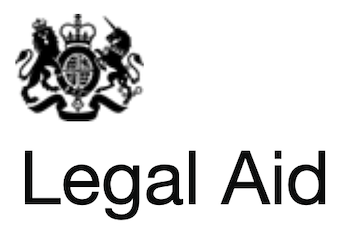Navigating the complexities of the legal system can be daunting, especially when concerns about costs arise. Fortunately, for those in the UK, legal aid provides a financial solution, ensuring justice isn’t solely reserved for those who can afford it. In this guide, we’ll delve into the intricacies of legal aid across the UK’s different legal jurisdictions and help you determine whether you qualify.
1. What is Legal Aid?
Legal aid is essentially government funding designed to cover legal costs for those who cannot afford them. Depending on your financial circumstances and the nature of your case, it can cover the entire or a portion of the costs. It’s available across England, Wales, Scotland, and Northern Ireland, although the qualifying criteria and processes differ slightly.
2. Who Qualifies for Legal Aid?
England & Wales:
Legal aid is available in many, but not all, types of cases. It’s predominantly offered in serious cases, such as those where your home is at risk, or when you or your children are at risk of harm. Your financial circumstances, including your income and capital, will be assessed to determine eligibility.
Scotland:
In Scotland, the Scottish Legal Aid Board (https://www.slab.org.uk/) provides legal aid. There are two types: Advice and Assistance for more general help and Legal Representation for representation in court. Eligibility is determined by your financial situation and the nature of your legal problem.
Northern Ireland:
The Legal Services Agency Northern Ireland (https://www.justice-ni.gov.uk/topics/legal-services-agency-northern-ireland) administers legal aid. As in other jurisdictions, your financial circumstances and the seriousness of your case will determine eligibility.
3. Steps to Qualify for Legal Aid:
1. Determine Your Eligibility: Begin by checking if you meet the necessary financial criteria. Online calculators, like the one provided by GOV.UK for England and Wales (https://www.gov.uk/check-legal-aid), can help.
2. Gather Essential Documents: This usually involves proof of income, savings, benefits, and details about your legal issue.
3. Find a Legal Aid Solicitor: Not all solicitors undertake legal aid work. Find a legal aid adviser or family mediator (https://find-legal-advice.justice.gov.uk/) to help with your case.
4. Complete the Application: Once you’ve found a solicitor, they will guide you through the application process, ensuring all details are correctly provided.
4. Finding a Legal Aid Solicitor or Barrister:
While many solicitors and barristers do offer legal aid services, not all are equipped or willing to do so due to the financial constraints and paperwork involved.
Tips for Finding One:
– Search Online: Use the Law Society’s Database (https://solicitors.lawsociety.org.uk/) for solicitors in England and Wales, Law Society of Scotland’s Website (https://www.lawscot.org.uk/) for Scotland, and The Law Society of Northern Ireland’s Directory (https://www.lawsoc-ni.org/) for Northern Ireland.
– Ask for Recommendations: Often, community centers, local charities, or friends can suggest legal professionals who provide legal aid services.
– Check Their Credentials: Ensure they are registered and have positive reviews or recommendations from previous clients.
5. Other Options to Consider:
– Contact the Legal Aid Agency directly: Their contact details can be found on the UK government’s website: https://www.gov.uk/government/organisations/legal-aid-agency
– Citizens Advice: Citizens Advice provides free, confidential and independent advice to help people overcome their problems. They can provide general advice on legal aid and point you in the right direction. Here’s the link to their website: https://www.citizensadvice.org.uk/
– Law Centres Network: Law Centres offer legal advice, casework and representation to individuals and groups. Specialising in social welfare law, they have an in-depth knowledge of the issues communities face. You can find the nearest Law Centre here: http://www.lawcentres.org.uk/i-am-looking-for-advice
Conclusion:
Legal aid plays a pivotal role in the UK’s legal landscape, ensuring that justice is accessible to all, regardless of financial capability. By understanding the nuances across different jurisdictions and knowing how to navigate the system, you can ensure you get the support you need when it matters most.
*For further guidance, always consult directly with a legal professional or visit the official government website relevant to your jurisdiction.*
Useful Links:
– GOV.UK – Legal Aid (https://www.gov.uk/legal-aid)
– UK Legal Aid Agency (https://www.gov.uk/government/organisations/legal-aid-agency)
– Scottish Legal Aid Board (https://www.slab.org.uk/)
– Legal Services Agency Northern Ireland (https://www.justice-ni.gov.uk/topics/legal-services-agency-northern-ireland)

